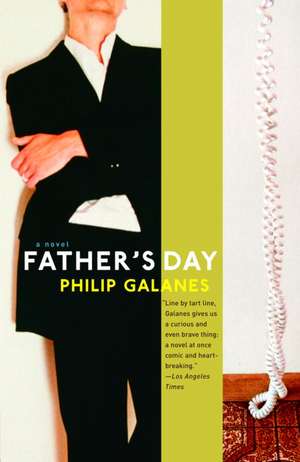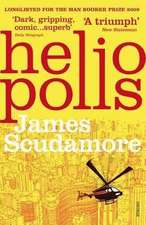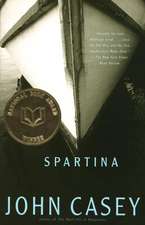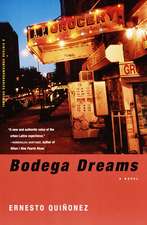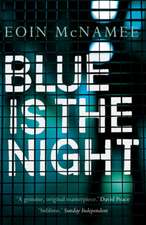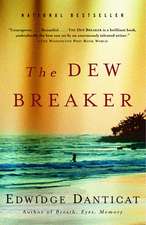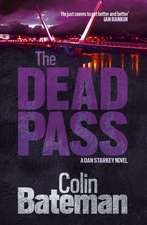Father's Day
Autor Philip Galanesen Limba Engleză Paperback – 31 mai 2005
Preț: 131.94 lei
Nou
Puncte Express: 198
Preț estimativ în valută:
25.25€ • 26.41$ • 20.97£
25.25€ • 26.41$ • 20.97£
Carte disponibilă
Livrare economică 13-27 martie
Preluare comenzi: 021 569.72.76
Specificații
ISBN-13: 9781400075294
ISBN-10: 1400075297
Pagini: 216
Dimensiuni: 134 x 201 x 15 mm
Greutate: 0.23 kg
Editura: Vintage Books USA
ISBN-10: 1400075297
Pagini: 216
Dimensiuni: 134 x 201 x 15 mm
Greutate: 0.23 kg
Editura: Vintage Books USA
Notă biografică
Philip Galanes is a graduate of Yale University and Yale University Law School. He lives in East Hampton and Manhattan. Father's Day is his first novel. It was selected by Barnes and Noble Booksellers for its Discover Great New Writers Program, and was a finalist for the Violet Quill Award.
Extras
CHAPTER ONE
Loud Blouse
It wasn't so long after my father killed himself that Sheila Gray came to town and told me quite a story.
Wait.
Let me try that again.
And this time, I need you to pay attention to Sheila and the story she told me about my mother. That's what I wanted you to hear. The part about my father was just for chronology, but it felt like more than that, didn't it? It made more noise than that.
My father's death turns out to be like a very loud blouse, like a shrill leopard print or an acid Pucci pattern--nearly impossible to coordinate. It overtakes just about anything I put next to it.
It would have been simple enough, I suppose, to say that Sheila came to town after my father died. I could have left it at that, and his death might have floated by like a little silk blouse in that version--like an ecru blouse at that, just as unremarkable as can be.
Sheila's story about my mother would be front and center then.
But somehow I can't say that.
Time and again, I'm drawn away from the little silk blouse, toward the screaming colors of a Versace print: My father killed himself.
It feels almost like I have to tell you.
Once I've said this much though, I don't want to say another word. I want to retreat. Just this much, and not a word more.
I want to use his suicide like a stun gun--to shoot you into submission with it, have you defer to me because of it--but I know it doesn't work like that. This story doesn't make you docile.
As soon as I say my father killed himself, the question "how?" comes roaring back at me, as if the information I gave were disinformation, as if my confession just begged the real question: "So how did he do it?"
And that's just the beginning.
But after I've climbed so far out on a limb that I've actually spoken the word--suicide--all I want is to crawl back to safety, toward the solid trunk of a hundred-year-old maple.
I'd like to take a break then--tell you next that he was six feet tall, or that he had lovely gray eyes and smooth, smooth skin.
But I know how this works.
His faint smell of citrus is of no interest to you.
No, you want to know how he did it.
My father put a bullet through his head.
There, I've told you.
But now you might think he placed the gun at his temple, sideways, and fired.
That's not how it was.
You see, when you ask for the "how?" of it--the "where?"--you take me right back to the crack of the gunshot, when I'm nowhere to be found and everywhere at once. Like a man with an airtight alibi whose fingerprints cover every square inch of the murder weapon.
When the steel gray bullet with its shiny copper tip is loaded into the empty chamber. Click.
When the nicely manicured hand lifts the gun heavily upward.
When the jaw goes slack.
You can't ask for more than this: He shot himself through his open mouth and straight out the back of his head.
Happy now?
When Sheila Gray started talking, I most definitely didn't ask any questions. Not a one.
No, I receded. Let her tell me what she would.
I'd met her only once before, after all.
Think 1974.
She flew into town from New Mexico back then--some place she insisted on calling a colony--with long, center-parted hair and a gauzy red gypsy skirt that she wore three days running. She smelled of sandalwood and guessed all our astrological signs correctly. With one look, she saw straight to the heart of me, and still she gave me the highest grade: Libra, just like her.
So proud to be seen through, for a change.
Are you sure there's no mistake?
"No, no," she said. "It's clear as day."
Grateful not to hide any telltale sign of who I might really be--not from her anyway. No, she saw it all, and she liked me just the same. The pride and the gratefulness swirling together like tasty ribbons of Bundt cake batter--all my hidden worthiness baking into something delicious at last.
Then she left.
Good-bye, Sheila.
Only to return twenty years later--this past April--almost six months to the day after we buried my father like a tulip bulb in the fall, never to bloom again in any spring.
Within three hours and fifteen minutes of Sheila's arrival, my mother calls me at home in New York. "Darling," she whispers into the receiver, but loud, the way she whispers.
Shiny little needles prickle my cheeks and the nape of my neck. We're sharing secrets again!
"I would love to know what the hell she's doing here," she says, still whispering.
It's going to be all downhill from here, I know that. But it's so much fun at the start.
The idea of her: My mother!
She must be off alone in her dressing room, sitting on that spindly wooden chair without arms: A short, plump woman on a chair as delicate as she is sturdy, pinning it down. She'll have pulled the bedroom door closed behind her and the dressing room door too, but you can still hear her whispering anywhere in the house.
"It's turned nasty already?" I ask.
"What do you know about it," she says. It's supposed to be a question, I think, but it doesn't sound like one. Her voice stays flat at the end.
The picture of her eyes rolling on the other end of the phone is as clear to me as the little puff of frustration I hear through the receiver. She's worked up now and ready to accelerate. Given Sheila the slip, like the cleverest driver in the fastest car chase ever. I can either climb into the passenger seat or get the hell out of her way: Those are my choices.
"Life is a one-woman show for that woman," she says, not even trying to whisper anymore.
"She's come three thousand miles to visit you," I say.
Sheila and my mother have spoken on the phone nearly every Sunday afternoon since time began. She's my mother's oldest friend.
"But enough about me," she interrupts.
Really?
"What do you think of my Birkenstocks?" she asks.
Oh, I see. She was only joking, just mocking Sheila and her hippie sandals.
"I'd relax if I were you," I say, mastering the loss. "She's only been there for a couple of hours."
"Yeah," she says. "A couple of hours too long."
She's playing tough now. I've seen it a million times.
Once, we were parked at a service station, and she was arguing with a mechanic about brake shoes. He said she needed new ones. She said the problem was that he hadn't aligned the tires properly the last time she was in. Soon they were raising their voices and repeating themselves. They were escalation incarnate.
Then he called her a bitch.
I heard him. He said, "Lady, you're a first-class bitch."
She wasn't fazed though, didn't even blink.
"That's Mister Bitch to you," she said.
But I was with her when she drove away too, trembling from the danger so narrowly averted and the heavy price she paid standing up for herself. It wasn't as if there was anyone else to stand up for her--or for me either, for that matter. No, she was forced to become the man of the family. Taking care of everything as my father slipped quietly away. It wasn't her choice at all.
But I'm in New York now, safe in my own apartment. I try not to care whether she relaxes or not, whether she drives Sheila off or doesn't.
"I'll tell you one thing," she says. "She's drinking me out of house and home."
She's on a rant now. Doesn't mean a word of it.
"Just roaring through the liquor cabinet."
I've heard it all before: She offers people drinks, then holds it against them if they accept.
"Why her kidneys haven't packed it in by now is the sixty-four-thousand-dollar question around here."
"I know, I know," I say, mock solicitous, a singsong signal that I couldn't care less. I got it from her.
Defending Sheila is pointless now. Everything about her is horrible to my mother at this moment. Every defense would only constitute further proof of her horribleness.
You see, it's always black and white with her, and very black right now. But Sheila will be back in her good graces in fifteen minutes.
That's the trick: Never counting on her to stick with either one--neither black nor white--because sooner or later, every black reverses to white, every white to black, and never faster than when she has an opportunity to disagree with you.
There's just no predicting which end is up at any given moment.
Even if I took up her position right now, mimicked it as flawlessly as an expert drag queen, even if I carried on arguing for her in just the way she would argue herself, it would backfire on me.
"Listen," she says, "I'd better hang up before she gets into the cough syrup."
I adjust the white pillow behind my neck. Reach for the telephone and dial: 555-PUMP.
My phone bills have grown enormous, but I don't care.
"Welcome to the Pump Line!" a male voice announces, prerecorded and extremely upbeat. "New York's only phone line for men who are serious about their bodies! Hang up now if you're not serious about yours!"
Then he pauses, giving me a chance to assess my seriousness, I suppose. Don't worry. I'm dead serious.
"I'm Scott!" he says. "I'll be your guide!"
Like Virgil, I thought once, and now again too, like an echo.
"Calls cost fifteen cents a minute," he says. "Twenty-five for the first."
His whole rap is like a persistent echo.
"You must be at least eighteen years old to use the Pump Line," he says. "When you hang up, you will definitely be pumped!"
Somehow this call has wormed its way into my daily routine over the past several months, as inevitable now in any evening as brushing my teeth, or gazing at my face in the bathroom mirror when I do, checking out my sex appeal through toothpaste foam: The dark, wavy hair and slate gray eyes, the long sharp nose that's just like my father's.
"Let's do it!" Scott says. "Press 'one' to speak to other guys, one on one! Press 'two' to..."
I always press "one."
I'm not much interested in the alternatives to flesh-and-blood men. The other options mostly involve prerecorded messages from hustlers or invitations from hard-to-fit men with fetishistic specialties--tie me up, tie me down, take an orange, cut it into slices--that sort of thing, painfully elaborate rituals that just seem like too much work, especially at bedtime.
There are group calls too--press "three"--a free-for-all sort of party line, but I can never distinguish between the voices there.
I press "one."
"Hang on," Scott says. "I'm making your connection right now."
Then he gives away the golden key: "And remember, when you're finished talking to one guy, just press the pound key, and you'll be automatically connected to someone new."
The men appear and disappear too with the push of a button. With the push of a button we create and destroy. I try not to think too much about the ones left behind--the victims of the pressed pound key. It's an individualized world here, a party of one really, with all manner of interior hot spots and land mines. The architecture designed for sexual efficiency--like pneumatic supermarket doors swinging open and shut with the pressure of an index finger on a dialing pad--hair triggers for the just-off detail, the not-quite-right tone of voice.
Everyone knows what it's all about here: Where were you when I created my sexy universe? It's hard to begrudge a man his pound key.
There's a short interlude of electronic music, then Scott again: "Here's the next guy."
The next guy?
I've got a connection.
But there was no first guy.
Never mind that now.
"Hello?" a voice says.
A real voice too, not prerecorded at all.
I'm on fire in a flash! Like Judy Garland at Carnegie Hall!
"Hello," I say.
My heart is pumping faster than a hummingbird's--a thousand beats a minute.
No response from my gentleman caller though.
My whole body is vibrating with excitement--thrumming on top of the snow white duvet.
Where is he?
My face feels as flushed as if I'd been in the sun all day.
I reach over and turn off the bedside light. I'm hot. Even that single bulb is generating too much heat for my racing metabolism.
"Hello?" I say again.
But I feel my heart in my mouth.
Feel my prospects dimming.
He should have said something by now.
"I'm here," he says.
That was a close one!
I feel a pain in my right hand.
Look down at it.
I'm clutching the receiver, squeezing it like a drowning man grabs onto the side of a lifeboat, bobbling along in the middle of the ocean.
"What's up?" he asks.
I loosen my grip.
"Not much," I say.
Careful to hide the thrill inside me.
"Just hanging around."
But my heart is racing still!
"You?"
I'm careful of my voice too, its pitch and tightness. Nervous that it sounds prissy, too controlled.
"I'm looking to get together," he says.
I like the sound of him--not like a friend, but not lurid either.
"Me, too," I say, trying for deeper, trying for looser.
"Where are you?" he asks.
His voice is exactly what you'd want in a boyfriend.
"In the Village," I say. "How about..."
Beep.
"You?" I ask, but it's too late.
He's already moved on to the next guy.
He pressed the pound key, which beeps loudly--painfully so, in fact--when you have the receiver at your ear, when you're still talking. I liked that one too, I think.
There are mysteries here, and you might as well get used to them. Maybe he's far away from the Village. Or maybe he didn't like the sound of my voice. Maybe his lover just walked into the room.
I'll never know.
Cut and switch, that's what I've learned here. You can't spend too much time worrying about the last guy.
I really wish they could improve that beep technology though--make it just a little softer for the recipient, hopeful still, receiver pressed against his ear.
"Here's the next guy," Scott says.
You see.
It's all about moving on.
"Hello," I say.
What's one false start?
"Hey, man."
"How are you?" I ask.
Revved up all over again.
"Great, man," he says. "How are you tonight, man?"
I'm not so sure about this new guy though--with his "man" this, and "man" that.
"I'm fine."
Hasn't he noticed that we're all men here? There's no reason to draw a thick red line beneath it.
"Yeah, man," he says. "I'm feeling real horny."
That's the nail in his coffin.
From the Hardcover edition.
Loud Blouse
It wasn't so long after my father killed himself that Sheila Gray came to town and told me quite a story.
Wait.
Let me try that again.
And this time, I need you to pay attention to Sheila and the story she told me about my mother. That's what I wanted you to hear. The part about my father was just for chronology, but it felt like more than that, didn't it? It made more noise than that.
My father's death turns out to be like a very loud blouse, like a shrill leopard print or an acid Pucci pattern--nearly impossible to coordinate. It overtakes just about anything I put next to it.
It would have been simple enough, I suppose, to say that Sheila came to town after my father died. I could have left it at that, and his death might have floated by like a little silk blouse in that version--like an ecru blouse at that, just as unremarkable as can be.
Sheila's story about my mother would be front and center then.
But somehow I can't say that.
Time and again, I'm drawn away from the little silk blouse, toward the screaming colors of a Versace print: My father killed himself.
It feels almost like I have to tell you.
Once I've said this much though, I don't want to say another word. I want to retreat. Just this much, and not a word more.
I want to use his suicide like a stun gun--to shoot you into submission with it, have you defer to me because of it--but I know it doesn't work like that. This story doesn't make you docile.
As soon as I say my father killed himself, the question "how?" comes roaring back at me, as if the information I gave were disinformation, as if my confession just begged the real question: "So how did he do it?"
And that's just the beginning.
But after I've climbed so far out on a limb that I've actually spoken the word--suicide--all I want is to crawl back to safety, toward the solid trunk of a hundred-year-old maple.
I'd like to take a break then--tell you next that he was six feet tall, or that he had lovely gray eyes and smooth, smooth skin.
But I know how this works.
His faint smell of citrus is of no interest to you.
No, you want to know how he did it.
My father put a bullet through his head.
There, I've told you.
But now you might think he placed the gun at his temple, sideways, and fired.
That's not how it was.
You see, when you ask for the "how?" of it--the "where?"--you take me right back to the crack of the gunshot, when I'm nowhere to be found and everywhere at once. Like a man with an airtight alibi whose fingerprints cover every square inch of the murder weapon.
When the steel gray bullet with its shiny copper tip is loaded into the empty chamber. Click.
When the nicely manicured hand lifts the gun heavily upward.
When the jaw goes slack.
You can't ask for more than this: He shot himself through his open mouth and straight out the back of his head.
Happy now?
When Sheila Gray started talking, I most definitely didn't ask any questions. Not a one.
No, I receded. Let her tell me what she would.
I'd met her only once before, after all.
Think 1974.
She flew into town from New Mexico back then--some place she insisted on calling a colony--with long, center-parted hair and a gauzy red gypsy skirt that she wore three days running. She smelled of sandalwood and guessed all our astrological signs correctly. With one look, she saw straight to the heart of me, and still she gave me the highest grade: Libra, just like her.
So proud to be seen through, for a change.
Are you sure there's no mistake?
"No, no," she said. "It's clear as day."
Grateful not to hide any telltale sign of who I might really be--not from her anyway. No, she saw it all, and she liked me just the same. The pride and the gratefulness swirling together like tasty ribbons of Bundt cake batter--all my hidden worthiness baking into something delicious at last.
Then she left.
Good-bye, Sheila.
Only to return twenty years later--this past April--almost six months to the day after we buried my father like a tulip bulb in the fall, never to bloom again in any spring.
Within three hours and fifteen minutes of Sheila's arrival, my mother calls me at home in New York. "Darling," she whispers into the receiver, but loud, the way she whispers.
Shiny little needles prickle my cheeks and the nape of my neck. We're sharing secrets again!
"I would love to know what the hell she's doing here," she says, still whispering.
It's going to be all downhill from here, I know that. But it's so much fun at the start.
The idea of her: My mother!
She must be off alone in her dressing room, sitting on that spindly wooden chair without arms: A short, plump woman on a chair as delicate as she is sturdy, pinning it down. She'll have pulled the bedroom door closed behind her and the dressing room door too, but you can still hear her whispering anywhere in the house.
"It's turned nasty already?" I ask.
"What do you know about it," she says. It's supposed to be a question, I think, but it doesn't sound like one. Her voice stays flat at the end.
The picture of her eyes rolling on the other end of the phone is as clear to me as the little puff of frustration I hear through the receiver. She's worked up now and ready to accelerate. Given Sheila the slip, like the cleverest driver in the fastest car chase ever. I can either climb into the passenger seat or get the hell out of her way: Those are my choices.
"Life is a one-woman show for that woman," she says, not even trying to whisper anymore.
"She's come three thousand miles to visit you," I say.
Sheila and my mother have spoken on the phone nearly every Sunday afternoon since time began. She's my mother's oldest friend.
"But enough about me," she interrupts.
Really?
"What do you think of my Birkenstocks?" she asks.
Oh, I see. She was only joking, just mocking Sheila and her hippie sandals.
"I'd relax if I were you," I say, mastering the loss. "She's only been there for a couple of hours."
"Yeah," she says. "A couple of hours too long."
She's playing tough now. I've seen it a million times.
Once, we were parked at a service station, and she was arguing with a mechanic about brake shoes. He said she needed new ones. She said the problem was that he hadn't aligned the tires properly the last time she was in. Soon they were raising their voices and repeating themselves. They were escalation incarnate.
Then he called her a bitch.
I heard him. He said, "Lady, you're a first-class bitch."
She wasn't fazed though, didn't even blink.
"That's Mister Bitch to you," she said.
But I was with her when she drove away too, trembling from the danger so narrowly averted and the heavy price she paid standing up for herself. It wasn't as if there was anyone else to stand up for her--or for me either, for that matter. No, she was forced to become the man of the family. Taking care of everything as my father slipped quietly away. It wasn't her choice at all.
But I'm in New York now, safe in my own apartment. I try not to care whether she relaxes or not, whether she drives Sheila off or doesn't.
"I'll tell you one thing," she says. "She's drinking me out of house and home."
She's on a rant now. Doesn't mean a word of it.
"Just roaring through the liquor cabinet."
I've heard it all before: She offers people drinks, then holds it against them if they accept.
"Why her kidneys haven't packed it in by now is the sixty-four-thousand-dollar question around here."
"I know, I know," I say, mock solicitous, a singsong signal that I couldn't care less. I got it from her.
Defending Sheila is pointless now. Everything about her is horrible to my mother at this moment. Every defense would only constitute further proof of her horribleness.
You see, it's always black and white with her, and very black right now. But Sheila will be back in her good graces in fifteen minutes.
That's the trick: Never counting on her to stick with either one--neither black nor white--because sooner or later, every black reverses to white, every white to black, and never faster than when she has an opportunity to disagree with you.
There's just no predicting which end is up at any given moment.
Even if I took up her position right now, mimicked it as flawlessly as an expert drag queen, even if I carried on arguing for her in just the way she would argue herself, it would backfire on me.
"Listen," she says, "I'd better hang up before she gets into the cough syrup."
I adjust the white pillow behind my neck. Reach for the telephone and dial: 555-PUMP.
My phone bills have grown enormous, but I don't care.
"Welcome to the Pump Line!" a male voice announces, prerecorded and extremely upbeat. "New York's only phone line for men who are serious about their bodies! Hang up now if you're not serious about yours!"
Then he pauses, giving me a chance to assess my seriousness, I suppose. Don't worry. I'm dead serious.
"I'm Scott!" he says. "I'll be your guide!"
Like Virgil, I thought once, and now again too, like an echo.
"Calls cost fifteen cents a minute," he says. "Twenty-five for the first."
His whole rap is like a persistent echo.
"You must be at least eighteen years old to use the Pump Line," he says. "When you hang up, you will definitely be pumped!"
Somehow this call has wormed its way into my daily routine over the past several months, as inevitable now in any evening as brushing my teeth, or gazing at my face in the bathroom mirror when I do, checking out my sex appeal through toothpaste foam: The dark, wavy hair and slate gray eyes, the long sharp nose that's just like my father's.
"Let's do it!" Scott says. "Press 'one' to speak to other guys, one on one! Press 'two' to..."
I always press "one."
I'm not much interested in the alternatives to flesh-and-blood men. The other options mostly involve prerecorded messages from hustlers or invitations from hard-to-fit men with fetishistic specialties--tie me up, tie me down, take an orange, cut it into slices--that sort of thing, painfully elaborate rituals that just seem like too much work, especially at bedtime.
There are group calls too--press "three"--a free-for-all sort of party line, but I can never distinguish between the voices there.
I press "one."
"Hang on," Scott says. "I'm making your connection right now."
Then he gives away the golden key: "And remember, when you're finished talking to one guy, just press the pound key, and you'll be automatically connected to someone new."
The men appear and disappear too with the push of a button. With the push of a button we create and destroy. I try not to think too much about the ones left behind--the victims of the pressed pound key. It's an individualized world here, a party of one really, with all manner of interior hot spots and land mines. The architecture designed for sexual efficiency--like pneumatic supermarket doors swinging open and shut with the pressure of an index finger on a dialing pad--hair triggers for the just-off detail, the not-quite-right tone of voice.
Everyone knows what it's all about here: Where were you when I created my sexy universe? It's hard to begrudge a man his pound key.
There's a short interlude of electronic music, then Scott again: "Here's the next guy."
The next guy?
I've got a connection.
But there was no first guy.
Never mind that now.
"Hello?" a voice says.
A real voice too, not prerecorded at all.
I'm on fire in a flash! Like Judy Garland at Carnegie Hall!
"Hello," I say.
My heart is pumping faster than a hummingbird's--a thousand beats a minute.
No response from my gentleman caller though.
My whole body is vibrating with excitement--thrumming on top of the snow white duvet.
Where is he?
My face feels as flushed as if I'd been in the sun all day.
I reach over and turn off the bedside light. I'm hot. Even that single bulb is generating too much heat for my racing metabolism.
"Hello?" I say again.
But I feel my heart in my mouth.
Feel my prospects dimming.
He should have said something by now.
"I'm here," he says.
That was a close one!
I feel a pain in my right hand.
Look down at it.
I'm clutching the receiver, squeezing it like a drowning man grabs onto the side of a lifeboat, bobbling along in the middle of the ocean.
"What's up?" he asks.
I loosen my grip.
"Not much," I say.
Careful to hide the thrill inside me.
"Just hanging around."
But my heart is racing still!
"You?"
I'm careful of my voice too, its pitch and tightness. Nervous that it sounds prissy, too controlled.
"I'm looking to get together," he says.
I like the sound of him--not like a friend, but not lurid either.
"Me, too," I say, trying for deeper, trying for looser.
"Where are you?" he asks.
His voice is exactly what you'd want in a boyfriend.
"In the Village," I say. "How about..."
Beep.
"You?" I ask, but it's too late.
He's already moved on to the next guy.
He pressed the pound key, which beeps loudly--painfully so, in fact--when you have the receiver at your ear, when you're still talking. I liked that one too, I think.
There are mysteries here, and you might as well get used to them. Maybe he's far away from the Village. Or maybe he didn't like the sound of my voice. Maybe his lover just walked into the room.
I'll never know.
Cut and switch, that's what I've learned here. You can't spend too much time worrying about the last guy.
I really wish they could improve that beep technology though--make it just a little softer for the recipient, hopeful still, receiver pressed against his ear.
"Here's the next guy," Scott says.
You see.
It's all about moving on.
"Hello," I say.
What's one false start?
"Hey, man."
"How are you?" I ask.
Revved up all over again.
"Great, man," he says. "How are you tonight, man?"
I'm not so sure about this new guy though--with his "man" this, and "man" that.
"I'm fine."
Hasn't he noticed that we're all men here? There's no reason to draw a thick red line beneath it.
"Yeah, man," he says. "I'm feeling real horny."
That's the nail in his coffin.
From the Hardcover edition.
Recenzii
“Line by tart line, Galanes gives us a curious and even brave thing: a novel at once comic and heartbreaking.” –Los Angeles Times
"[Regarding] fathers and Father's Day: This year it's easy. Buy Dad a copy of Philip Galanes' hilarious and brilliant first novel, Fathers Day." –The New York Observer
“Galanes’s rapid-fire prose effortlessly gets us into the head of his love-fixated New Yorker, thanks primarily to his quick and quirky dialogue, which sounds as if it really had been overheard on a phone line.” –Time Out New York
“An important and promising new voice in gay fiction.” –San Francisco Bay Times
"Philip Galanes makes his debut with a novel that is both heartbreaking and deftly comic, the story of a young man struggling with his most primitive desires--wanting and needing. It is a novel about the complex relationships between parents and children, a story of loss and of our unrelenting need for acknowledgment, to be seen as who we are. And in the end it is simply a love story for our time." –A. M. Homes
“An utterly readable tale. . . . Galanes succeeds at painting complicated, tender as well as racy moments of desperation.” –Hamptons Magazine
“This is not your typical debut novel. . . . Philip Galanes is a powerful writer, and he deserves praise for bucking typical expectations of a first novel.” –Dallas Voice
"In Matthew Vaber, Philip Galanes has created a delightful paradox, a character both superficial and profound, casual-sounding yet compulsive, very funny and borderline desperate--in short, a classic human being. As Matthew himself might say, Father's Day is High Noon in loafers." –Mark O'Donnell
“Father’s Day pulls you in every bit as much as the classic ‘The Snows of Kilimanjaro.’ . . . Galanes’s writing is truly a pleasure to read, staccato sentences, finely noted details, and quirky metaphors that are meant to be savored.” –EDGE Boston
"Philip Galanes has fashioned a novel both bleak and funny about a young man's struggle to sort out his troubled love: the too-strong love for his mother, the too-weak love for his suicidal father, and the all-consuming love of anonymous sexual encounters. Pointed and acute, this story tells of the narrator's many betrayals of others and their many betrayals of him. It exists in an uncomfortable moral space where the humor of terrible things sometimes outweighs, but never obscures, their poignancy." –Andrew Solomon
“Father’s Day is about dealing with loss and grief . . . it will absolutely make its readers want to pick up the phone and call their dads.” –The Weekly News
"[Regarding] fathers and Father's Day: This year it's easy. Buy Dad a copy of Philip Galanes' hilarious and brilliant first novel, Fathers Day." –The New York Observer
“Galanes’s rapid-fire prose effortlessly gets us into the head of his love-fixated New Yorker, thanks primarily to his quick and quirky dialogue, which sounds as if it really had been overheard on a phone line.” –Time Out New York
“An important and promising new voice in gay fiction.” –San Francisco Bay Times
"Philip Galanes makes his debut with a novel that is both heartbreaking and deftly comic, the story of a young man struggling with his most primitive desires--wanting and needing. It is a novel about the complex relationships between parents and children, a story of loss and of our unrelenting need for acknowledgment, to be seen as who we are. And in the end it is simply a love story for our time." –A. M. Homes
“An utterly readable tale. . . . Galanes succeeds at painting complicated, tender as well as racy moments of desperation.” –Hamptons Magazine
“This is not your typical debut novel. . . . Philip Galanes is a powerful writer, and he deserves praise for bucking typical expectations of a first novel.” –Dallas Voice
"In Matthew Vaber, Philip Galanes has created a delightful paradox, a character both superficial and profound, casual-sounding yet compulsive, very funny and borderline desperate--in short, a classic human being. As Matthew himself might say, Father's Day is High Noon in loafers." –Mark O'Donnell
“Father’s Day pulls you in every bit as much as the classic ‘The Snows of Kilimanjaro.’ . . . Galanes’s writing is truly a pleasure to read, staccato sentences, finely noted details, and quirky metaphors that are meant to be savored.” –EDGE Boston
"Philip Galanes has fashioned a novel both bleak and funny about a young man's struggle to sort out his troubled love: the too-strong love for his mother, the too-weak love for his suicidal father, and the all-consuming love of anonymous sexual encounters. Pointed and acute, this story tells of the narrator's many betrayals of others and their many betrayals of him. It exists in an uncomfortable moral space where the humor of terrible things sometimes outweighs, but never obscures, their poignancy." –Andrew Solomon
“Father’s Day is about dealing with loss and grief . . . it will absolutely make its readers want to pick up the phone and call their dads.” –The Weekly News
